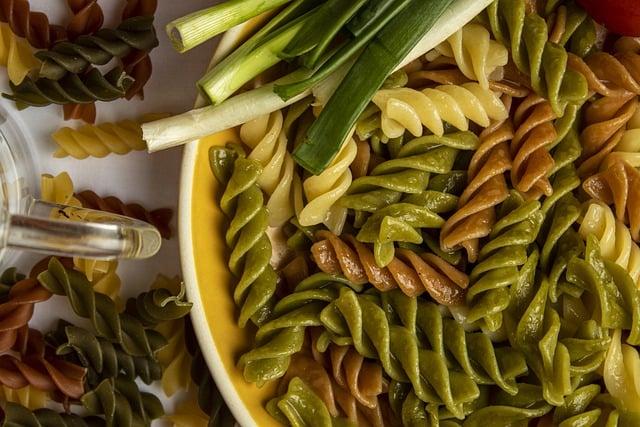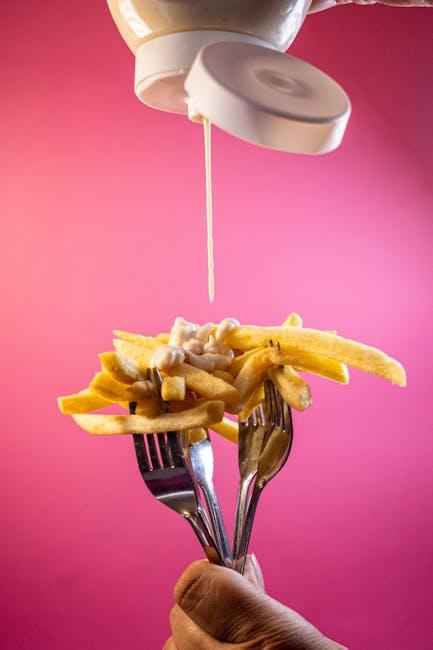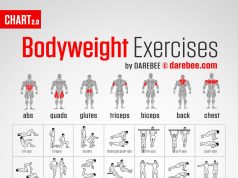In the realm of nutrition and dieting, where kale smoothies and quinoa salads often reign supreme, the concept of a “cheat meal” emerges as both a tantalizing temptation and a controversial topic. Picture a meticulously planned diet interrupted by a single indulgent feast—perhaps a towering cheeseburger with crispy fries or a decadent slice of chocolate cake. For some, this momentary culinary rebellion serves as a motivational reward, a chance to satisfy cravings without guilt. For others, it raises a red flag, suggesting potential derailment of carefully set dietary goals. As the debate simmers, we delve into the complexities of cheat meals, exploring whether they serve as a healthy psychological release or pose a harmful risk to long-term nutritional success. Join us as we navigate the fine line between indulgence and discipline, uncovering the truths and myths that surround this flavorful phenomenon.
Balancing Cravings and Nutrition: The Science Behind Cheat Meals
The concept of indulging in a cheat meal while maintaining a healthy diet can be both tempting and perplexing. Cravings are a natural part of human physiology, often driven by a mix of emotional, psychological, and biological factors. Understanding the science behind these cravings can help in striking a balance between indulgence and nutrition. When we consume foods that are rich in sugar, fat, or salt, our brain releases dopamine, a neurotransmitter associated with pleasure and reward. This can lead to a cycle where the brain craves more of these ’rewarding’ foods, making it difficult to resist temptation.
The role of cheat meals is to potentially offer a psychological break from the rigidity of strict dietary patterns, which can help in maintaining long-term adherence to healthy eating habits. However, it’s crucial to approach cheat meals with mindfulness and moderation. Consider these strategies to balance cravings and nutrition effectively:
- Plan your cheat meals: Schedule them in advance to avoid spontaneous overindulgence.
- Portion control: Enjoy your favorite foods, but in smaller quantities to satisfy cravings without derailing your nutritional goals.
- Mindful eating: Focus on savoring each bite, which can enhance satisfaction and reduce the desire to overeat.
- Balance and variety: Incorporate a wide range of foods in your diet to reduce the likelihood of intense cravings.
Psychological Perks: How Indulgence Can Boost Motivation
In the quest for a balanced lifestyle, a little indulgence might just be the secret ingredient to enhancing motivation. Incorporating planned indulgences, like cheat meals, can provide psychological benefits that contribute to overall well-being. Allowing oneself to enjoy a favorite meal occasionally can help break the monotony of a strict diet, acting as a reward system that can rejuvenate commitment to health goals. This temporary break from routine can spark a sense of satisfaction and pleasure, leading to increased motivation and focus when returning to a more disciplined regimen.
Here are some ways in which indulgence can serve as a motivational tool:
- Boosts Morale: A scheduled treat can lift spirits, providing a mental break and reducing feelings of deprivation.
- Prevents Burnout: By allowing moments of indulgence, individuals can maintain enthusiasm and prevent diet fatigue.
- Enhances Focus: Knowing a reward is on the horizon can enhance concentration and dedication to dietary goals.
While moderation is key, the psychological perks of a well-timed indulgence can be a powerful ally in maintaining a balanced and motivated approach to healthy living.

Navigating the Risks: Potential Pitfalls of Cheat Meals
When indulging in cheat meals, it’s crucial to be aware of the potential risks that can accompany them. Cheat meals can sometimes derail your overall dietary goals if not approached mindfully. While they can offer a psychological break from dietary restrictions, they might lead to unintended consequences such as:
- Overindulgence: The allure of a cheat meal can sometimes turn into a cheat day, or even a cheat weekend, leading to a significant caloric surplus that can offset your weekly progress.
- Guilt and Anxiety: For some, indulging in a cheat meal might trigger feelings of guilt or anxiety, which can be counterproductive to maintaining a healthy relationship with food.
- Potential Health Risks: Consuming high-fat or high-sugar meals in excess might lead to digestive issues or spikes in blood sugar, particularly if your body is not accustomed to such foods.
It’s important to approach cheat meals with balance and intention, ensuring they serve as a tool for dietary adherence rather than a stumbling block. By setting boundaries and understanding your body’s responses, you can enjoy the occasional indulgence without compromising your health goals.

Crafting the Perfect Cheat Meal: Expert Tips for Enjoyment and Health
When it comes to indulging in a cheat meal, balance and mindfulness are key to maximizing enjoyment while maintaining a healthy lifestyle. Nutrition experts suggest that occasional deviations from your regular eating pattern can help curb cravings and promote a sustainable diet. However, it’s essential to approach cheat meals with a strategic mindset. Here are some tips to ensure your cheat meal is both satisfying and beneficial:
- Plan Ahead: Schedule your cheat meal to coincide with social events or special occasions to fully enjoy the experience without guilt.
- Portion Control: Savor your favorite treats in moderation to prevent overindulgence and maintain your overall health goals.
- Quality Over Quantity: Choose high-quality, nutrient-dense foods that offer both flavor and satisfaction, making the experience more rewarding.
- Stay Hydrated: Drinking water before and after your meal can aid digestion and help you feel fuller, reducing the temptation to overeat.
Remember, the key to a successful cheat meal is to enjoy it mindfully and return to your healthy eating habits afterward. This balance ensures that cheat meals are a positive part of your diet rather than a setback.






























